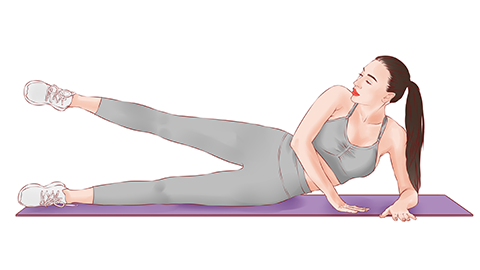What causes leg cramps in the calves during sleep at night?
Normally, leg cramps at night may be caused by prolonged leg compression, low nighttime temperatures, vitamin D deficiency, electrolyte imbalance, sciatica, uremia, and other factors. If any abnormalities occur, it is recommended to seek medical attention promptly. The specific analysis is as follows:

1. Prolonged leg compression: When the legs remain compressed for a long time during sleep, it can hinder blood circulation in the legs, causing muscle spasms due to ischemia and resulting in cramps. It is recommended to frequently change sleeping positions and avoid prolonged leg compression to promote blood circulation.
2. Low nighttime temperatures: When the ambient temperature is too low at night, cold stimulation can cause contraction of the calf muscles, leading to cramps. It is important to keep warm at night and cover the legs with suitable bedding to prevent them from getting chilled.
3. Vitamin D deficiency: A deficiency in vitamin D can affect the absorption and utilization of calcium, leading to reduced blood calcium levels, increased neuromuscular excitability, and consequently causing leg cramps during sleep. This is often accompanied by symptoms such as excessive sweating, irritability, and bone pain. The main treatment involves following a physician's advice to take medications such as vitamin D drops, alfacalcidol soft capsules, or chewable calcium carbonate D3 tablets.
4. Sciatica: When the sciatic nerve is compressed or irritated, it can cause spasms in the calf muscles it innervates, leading to leg cramps during sleep. This is often accompanied by radiating pain in the buttocks, back of the thigh, and calf. It is recommended to take medications such as celecoxib capsules, etoricoxib tablets, or mecobalamin dispersible tablets under a doctor's guidance.
5. Uremia: Severe kidney dysfunction leads to the accumulation of metabolic waste in the body that cannot be excreted normally, affecting neuromuscular function and causing leg cramps during sleep. This is often accompanied by symptoms such as edema, oliguria or anuria, nausea, and vomiting. Treatment should follow medical advice to use medications such as Niao Du Qing granules, Shen Shuai Ning capsules, or calcitriol soft capsules.
In daily life, maintaining good habits, eating a balanced diet, engaging in appropriate physical exercise to strengthen physical health, and keeping warm are all important to reduce the occurrence of leg cramps at night. If cramps occur frequently or are accompanied by other uncomfortable symptoms, prompt medical consultation is recommended.




